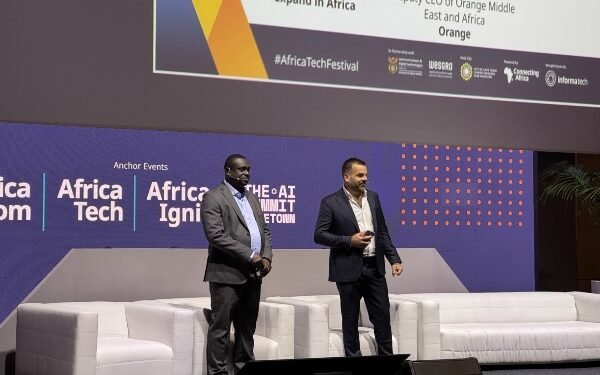Orange Middle East & Africa Deputy CEO Brelotte Ba (pictured, left) highlighted the importance of investing in network resilience following the cable cuts experienced in March, especially as Africa’s demand for connectivity surges with the rise of AI.
In March this year, an anchor dragged across the ocean floor near the Ivory Coast severed four subsea cables simultaneously, causing internet blackouts across 13 countries, seven of which are part of Orange’s footprint, including Senegal, Liberia, and the Ivory Coast.
Speaking at Africa Tech Festival in Cape Town today (12 November), Ba detailed how the operator group managed the crisis and noted that some African countries lack strong network resilience and rely on a single cable landing station.
Ba explained that Orange rerouted traffic from affected countries to other markets still online, restoring connectivity within hours rather than waiting for the time-consuming repairs needed on the ocean floor.
“This cable cut was a real turning point because it completely changed our view on resilience. Resilience used to be about connecting to multiple submarine cables, but today, it’s about linking submarine cables to terrestrial networks and being able to switch from one hub to another,” said Ba.
The Orange executive cited a data point presented by Minister Solly Malatsi from South Africa’s Ministry of Communications and Digital Technologies, who highlighted that connectivity could contribute US$180 billion to Africa’s GDP, equating to 5.2%. He argued that this can only be achieved with robust and reliable connectivity to support the technology ecosystem.
Ba added that the economic impact of the cable cuts could cost the Ivory Coast US$25 million per day, and Egypt US$125 million.
The executive also revealed that, following the cable cuts earlier this year, Orange has increased its resilience fivefold in various locations across its West African footprint.
“It’s crucial to build terrestrial networks connected across our hubs to address this issue of resilience. This is also beneficial for domestic traffic, as having extensive fibre networks at the terrestrial level provides many opportunities to serve both B2B and B2C customers.”









